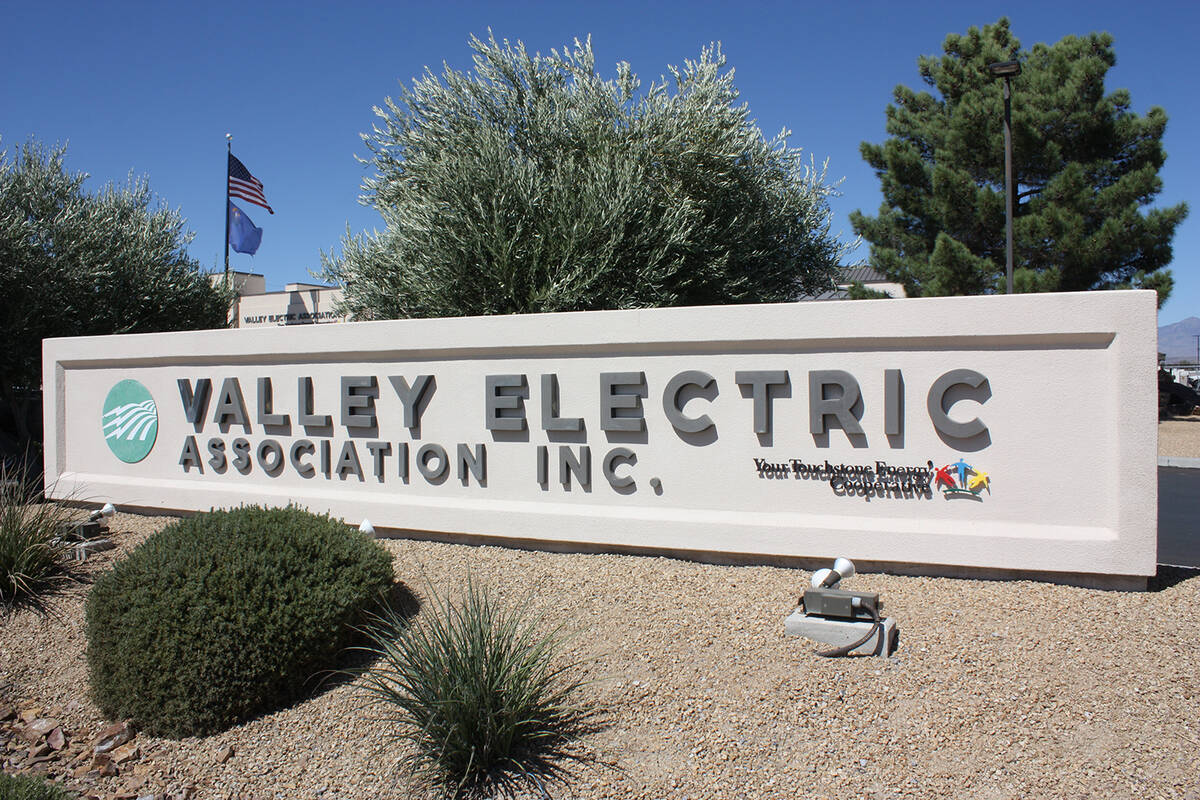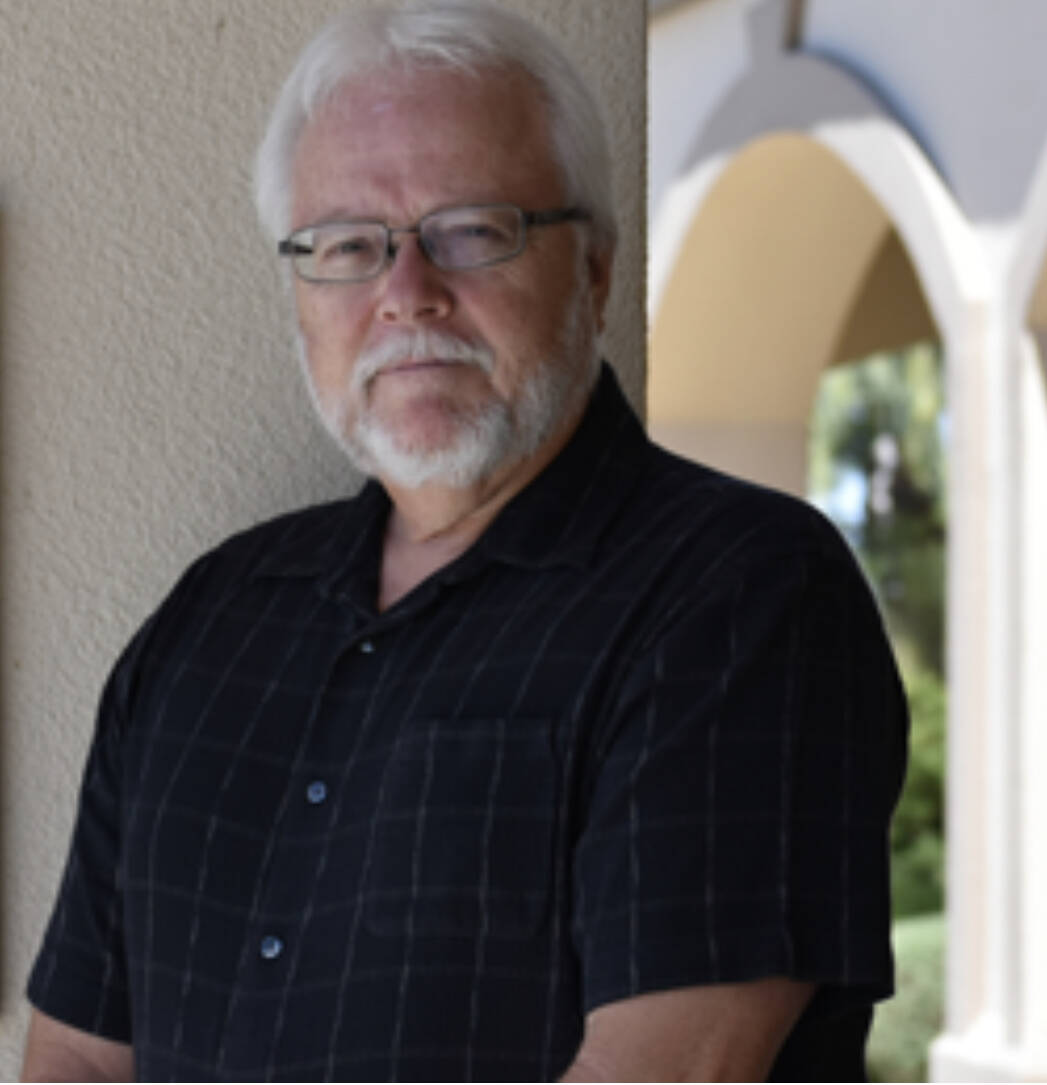Former Valley Electric Association board member says the co-op’s spending is ‘wasteful’
In March, Paul Healey officially resigned as a member of the Valley Electric Association Board of Directors.
He is now speaking out about what prompted him to throw in the towel.
At the heart of Healey’s decision is a belief that the member-owned utility cooperative is not fiscally responsible.
Healey cited a number of VEA actions over the past three years, acknowledging that he even supported some of those measures, but he said he remains disappointed in how the board’s actions were implemented.
And most of his disappointment with VEA exclusively boils down to its budget.
Despite stepping down from the board, Healey told the Pahrump Valley Times he couldn’t shake his frustration and said he wanted co-op members to understand his point of view.
“I am still very emotionally involved with Valley Electric. I am very unhappy with the way a lot of things happened. So after I resigned, right before the election began, because I was fed up with everything, I said, ‘Well, it’s not my problem anymore.’ But I just can’t seem to leave it there, because I really care a lot about this little town,” Healey said in an interview earlier this month.
Healey explained that he initially become interested in a seat on the co-op’s board because of previous controversies surrounding the cooperative.
Several years ago, when there was a vacancy, he applied for a board appointment, but was not selected.
When the seat came up for election in March 2020, Healey jumped into the campaign, landing a spot on the board.
“From that point forward, it has pretty much been exasperation and frustration because Valley Electric absolutely and unequivocally runs like a mini-government,” Healey asserted.
VEA staff reductions
Of Healey’s complaints, he said he feels the most egregious relates to staff-reduction efforts.
“When I first delved into the financial information, I discovered to my total shock that the average cost of each of the approximately 135 employees was an astonishing $210,000. That’s from top-to-bottom; you would cringe at some of the top-end of the executive staff,” Healey said.
As someone with decades of experience in the financial industry, Healey said his immediate reaction was to ask VEA Chief Executive Officer Mark Stallons his thoughts on staffing levels. When Healey was told that the co-op would look into staff reductions, Healey was pleased.
However, he was angered by the way in which those reductions occurred.
“They proposed a SERP (Supplemental Early Retirement Plan) to incentivize early retirement for those who were already getting close to retiring,” Healey said. “I had never heard of SERP before. I read through it and what it said was that we had to, in this case, offer the SERP to 19 people. Where that came from, what regulation that was, I don’t know, but we were going to offer that to 19 people.”
The projection was that 11 staffers would take the offer, which would result in a cost of about $4.5 million when all factors were accounted for, Healey said.
However, all 19 accepted the offer, which came as no surprise to Healey.
“Of course they took it and I don’t blame them, who wouldn’t?” Healey said. “It came with a full year of severance pay and, if they were under 65, they got to keep their medical plan until they were 65 and got on Medicare. On top of that, they got three additional years of vesting. What that means is, for every year you work at VEA, you earn 2% of your final three-year average for the rest of your life after you retire. That’s an addition 6% for those who took the SERP.”
Healey said he was against the idea when he realized that it would now cost the co-op somewhere around $9 million and he called for a special session of the board, but to no avail.
The SERP stood by a vote of 4-2 and in the wake, Healey said the co-op not only saw executives retiring but valuable, experienced linemen who would then have to be replaced.
He also took issue with the fact that the co-op utilizes what is called a “defined benefit plan”.
“You do not have defined benefit plans in private business anymore,” Healey proclaimed. “Your county, your state PERS programs, that’s a defined benefit plan and even the government is changing the way they do that. It’s antiquated because it is unsustainable.”
The final straw for Healey was what happened during the board of director’s Jan. 6 meeting, when Healey said he had convinced his fellow board members to approve the co-op’s overall budget only if $2.5 million in increased staffing costs were removed.
This tipped off an immediate response from Stallon, who said he would be resigning. When the board reconvened for the public portion of its board meeting that afternoon, Healey was astounded to see dozens upon dozens of co-op staff in attendance, all of whom proceeded to berate the board for its decision.
“They were told that I was looking to fire many employees and cut the benefits package,” Healey stated. “I wanted no such thing. I merely wanted to reduce the amount of proposed increased staff expenditures.”
Once the executive portion of the board meeting was resumed, the board reversed its course and approved the budget without adjustment, at the same time also approving a one-year extension to Stallon’s contract, and it was just two months later that Healey resigned himself.
“Now you know the rest of the story,” Healey said. “This is not to say that everything would be peachy if they just had laid-off those employees, it would still be a train wreck. The power, being the biggest cost, if you can’t control that, you’ve got a problem no matter what. But one doesn’t excuse the other.”
VEA responds
When reached for comment, Stallons stressed that the co-op is run by an elected board and that decisions regarding staff wages and benefits, as well as operational budgets are at the board’s discretion.
“Director Healey’s contributions during his tenure on the board of directors were appreciated and Valley was surprised to see him resign,” Stallons told the PVT. “While Mr. Healey is entitled to his opinions, Valley is governed by a seven-member board of directors, who work together and speak as one voice in the best interest of the membership, providing strategic direction to the management team.
“In all cases, Valley has worked to ensure the lowest rates possible for its members. Valley, as a nonprofit cooperative, is governed by a board of directors. The board, acting as a majority, makes decisions related to employee compensation, retirement packages and business operations,” Stallons continued.
“Valley has worked tirelessly in a difficult and volatile power supply market to ensure affordable rates and reliable service for all members. Since 2017, market power supply costs outside of VEA’s control have increased $26 million,” Stallons stated. “This has created significant hurdles and required Valley to make difficult rate decisions over the past several years. Over the same period, and in an inflationary environment, Valley has worked to keep energy service as inexpensive as possible by decreasing its operating costs by $8.5 million.”
Stallons noted that all of the VEA Board of Director’s meetings are open to the public and regularly advertised on the co-op’s website.
Contact reporter Robin Hebrock at rhebrock@pvtimes.com
UPCOMING MEETING
Valley Electric Association will hold its annual Full Membership Meeting on Friday, June 16 inside the Valley Electric Conference Center, 800 E. Highway 372 in Pahrump. Registration opens at 5 p.m.; the meeting is scheduled to start at 6:30 p.m.


















